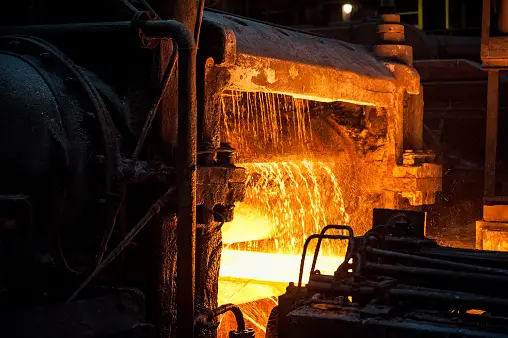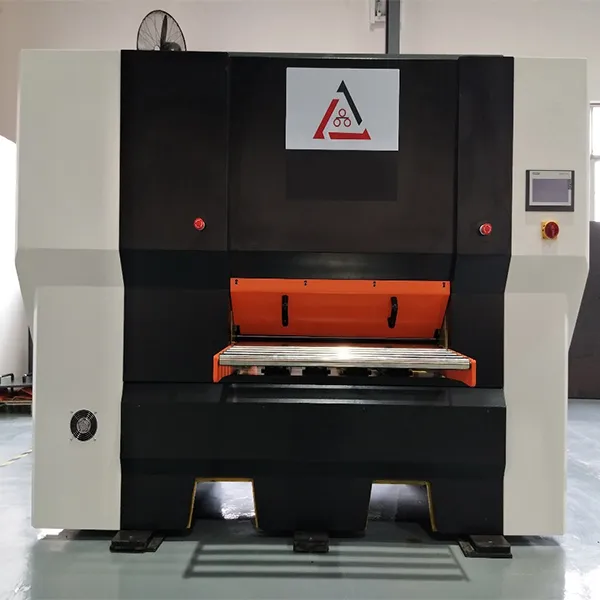
Key Considerations for Selecting a CNC Leveling Machine
In today's competitive manufacturing landscape, achieving perfect material flatness is not just an ideal - it's a necessity. As a cornerstone of modern production lines, CNC leveling machines have become vital for ensuring material quality and processing efficiency. For manufacturers seeking reliable leveling solutions, understanding these key selection factors will ensure you choose equipment that delivers optimal performance and return on investment.
1. Material Specifications and Characteristics
The foundation of selecting an appropriate CNC leveling machine begins with understanding your materials. Consider these crucial aspects:
-
Material type: Whether you process mild steel, stainless steel, aluminum, or specialty alloys
-
Thickness range: The machine must handle your thinnest and thickest materials
-
Material strength: Tensile strength directly affects leveling force requirements
-
Sheet dimensions: Maximum width and length determine machine size specifications
-
Initial flatness conditions: Understanding typical imperfections helps specify required capabilities
2. Technical Specifications and Performance Parameters
When evaluating CNC leveling machines, several technical factors demand careful consideration:
-
Roller configuration and quantity: More rollers generally enable better flatness, especially for thin materials
-
Roller diameter and spacing: Critical for determining the minimum thickness capability
-
Power capacity: Motor power must match your production requirements and material specifications
-
Leveling accuracy: Look for machines guaranteeing flatness within precise tolerances
-
Speed capabilities: Production throughput must align with your operational needs
3. Control System and Automation Features
The sophistication of the control system significantly impacts operational efficiency:
-
CNC system capabilities: Advanced programming and memory functions enhance productivity
-
User interface: Intuitive controls reduce operator training time and errors
-
Automation integration: Compatibility with upstream and downstream equipment
-
Data collection: Modern systems should offer production monitoring and reporting
-
Diagnostic functions: Quick troubleshooting minimizes downtime
4. Structural Integrity and Build Quality
A machine's construction directly affects its performance and longevity:
-
Frame design: Robust, vibration-resistant construction ensures consistent performance
-
Material quality: High-grade components withstand continuous operation demands
-
Precision engineering: Accurate manufacturing tolerances guarantee reliable operation
-
Maintenance accessibility: Easy access to components reduces service time
-
Safety features: Comprehensive protection systems safeguard operators and equipment
5. Production Requirements and Operational Factors
Align the machine specifications with your production environment:
-
Volume capacity: Ensure the machine can handle your production quantities
-
Flexibility needs: Consider quick-change capabilities for different materials
-
Space constraints: Physical dimensions must fit your facility layout
-
Utility requirements: Power, air, and other utility needs must match availability
-
Future expansion: Consider scalability for anticipated business growth
6. Supplier Expertise and Support Services
The manufacturer's reputation and support capabilities are equally important:
-
Industry experience: Choose suppliers with proven expertise in leveling technology
-
Technical support: Ensure responsive service and technical assistance
-
Training programs: Comprehensive operator and maintenance training
-
After-sales service: Reliable maintenance support and quick response times
-
Reference projects: Review successful installations in similar applications
7. Cost Analysis and Return on Investment
Beyond initial purchase price, consider the total cost of ownership:
-
Initial investment: Purchase price and installation costs
-
Operating costs: Energy consumption and maintenance expenses
-
Productivity gains: Calculate potential improvements in throughput and yield
-
Quality improvements: Reduced scrap and improved product quality
-
Long-term reliability: Consider lifecycle costs and durability
Making the Right Choice
Selecting the ideal CNC leveling machine requires balancing technical requirements with operational needs and budget constraints. At XINLIJIN, we bring decades of expertise in precision leveling technology, offering customized solutions that address these critical factors. Our CNC leveling machines combine advanced technology with robust construction, ensuring they meet your specific production challenges while delivering lasting value.
The right leveling machine should not only solve your immediate flatness issues but also contribute to long-term manufacturing excellence. By carefully evaluating these key considerations, you can make an informed decision that enhances your production capabilities and supports your business objectives.


















































